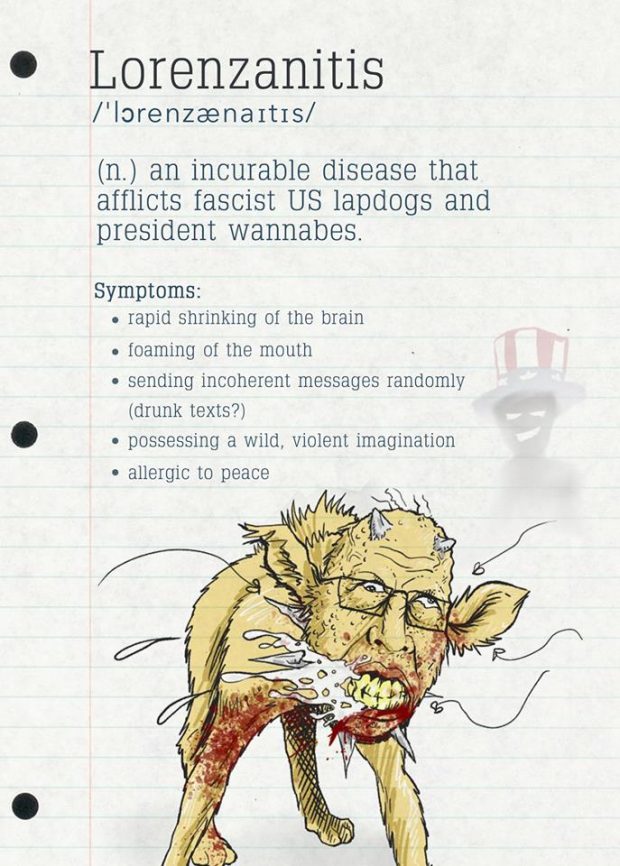Oris: Many surrenderees AFP’s own
The New People’s Army (NPA) hit at the Armed Forces of the Philippines (AFP) for parading “thousands of fake surrenderees” nationwide.
In a video message, NPA National Operations Command spokesperson Jorge Madlos said many of those paraded by the AFP before President Rodrigo Duterte are in fact members of their own paramilitary forces or innocent civilians who were forced by the military to pose as surrenderees.
“When we checked, the (AFP) list includes 36 Lumad paramilitaries from Lianga (Surigao del Sur) who are also on the list of those who massacred three fellow Lumads in September 1 (2015),” Madlos said.
Madlos added that the 36 paramilitary troopers are being led by Calpet Egua who is reported to have been trained, armed, supported and protected by the Philippine Army.
“The AFP uses this paramilitary group as fake NPA surrenderees to clear their names as having been involved in the massacre,” Madlos said.
Madlos, also known by his nom de guerre as Ka Oris, said it adds insult to injury that the so-called surrenderees were given houses and lots as well as pocket money by Duterte in a ceremony in Malacañan Palace.
Madlos said that the AFP also picked up civilians who were later presented as surrenderees as well as those who have long left the NPA and have already been living as ordinary farmers.
“They were again picked up and recycled as new surrenderees,” Madlos said.
“Although, in fact, there were real surrenderees, such as the alleged National Democratic Front of the Philippines-Far South Mindanao spokesperson,” he added, referring to Nilo Legaspi and his wife who surrendered last January.
Madlos said real surrenderees are very few and were only mixed with thousands of fake surrenderees.
The five or ten surrenderees does not make for a mass surrender of NPA forces, Madlos said.
Both Duterte and the AFP have repeatedly said the NPA is down to a few thousands of fighters left.
Far from being defeated
In January, former AFP chief of staff Rey Guerrero said the military is committed to weaken by 50 percent the NPA, which he said has only about 3,700 fighters nationwide.
In its presentation of hundreds of surrenderees to Duterte, the AFP said the so-called surrenderees were part of 4,000 who recently abandoned armed struggle.
“These are indicators of growing discontent within their organizations, the success of our programs, and the cooperation between residents and local government units,” AFP spokesperson Col. Edgard Arevalo said in a press conference last January.
Netizens, however, pointed out that the Duterte government in fact presented 300 more so-called surrendered members than the AFP’s claim of NPA’s 3,700 fighters.
The Communist Party of the Philippines (CPP) said in their 49th anniversary statement last March that the NPA has more than a hundred guerilla fronts with at least company sized formations in addition as many People’s Militia units all over the country.
The CPP also said that Duterte and the AFP are wasting public funds on fake surrenderees.
“Over the past few months, Duterte himself and the entire military and defence establishment have spent hundreds of millions of pesos to stage Malacañang dinners with the president, tours around Luneta and other cheap gimmickry. The bigger portion of the monies, of course, line the pockets of armed forces field officials,” the CPP said in a statement last March.
“If we are to believe claims made by officials of the Armed Forces of the Philippines (AFP) at the end of 2017 that the NPA is down to 3,700 members, then by simple subtraction, one can conclude that the AFP under Duterte has already accomplished what the previous regimes have failed to do: defeat the NPA,” it added.
In a separate announcement, CPP founder Jose Ma. Sison said the NPA is nowhere near being defeated, being present in at least 73 of the country’s 81 provinces.
Sison added that NPA presence in these provinces “denotes the existence of the people´s militia and the self-defense units of the revolutionary mass organizations. These two layers of people´s defense are the auxiliary and reserve force of the NPA.” # (Raymund B. Villanueva)

